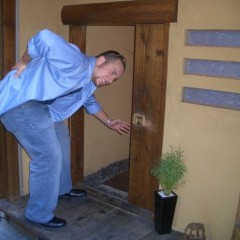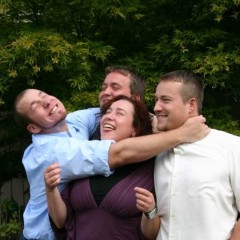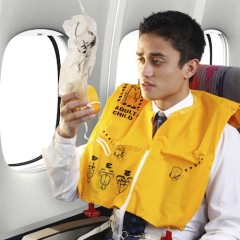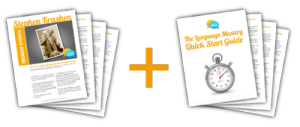24) Respecting a Culture Does Not Mean Liking or Agreeing With Every Part of It
“In history, truth should be held sacred, at whatever cost…especially against the narrow and futile patriotism, which, instead of pressing forward in pursuit of truth, takes pride in walking backwards to cover the slightest nakedness of our forefathers.” ~Col. Thomas Aspinwall I am a serious Japanophile. But my love of Japanese culture, history, martial arts, food, anime, manga, literature, architecture, gardens,...
25) Foreign Languages Open Doors You Didn’t Even Know Were There
Speaking Japanese and Mandarin (even with plenty of mistakes and heaps of as-of-yet unknown words and structures) has opened so many doors in my life that would have otherwise remained shut. Or perhaps more accurately, the ability to understand and use these foreign tongues has made doors visible that I wouldn’t even have seen otherwise. I have been under-qualified or even unqualified for many of the jobs I have landed, but got my foot in the door (and ultimately, got the job) because of my language and cultural skills. And once on the job, the ability to more easily communicate with—and translate between—different languages, cultures, and ways of doing things has been tremendously helpful even in work that has no overt connection to foreign languages.
26) Non-Standard Language is Not the Same as Sub-Standard
As I’ve traveled the world—and even different pockets of my home country—I have witnessed countless cases of people being treated better or worse based on their native tongue or regional dialect. But to me, making judgements about someone’s character, intelligence, or trustworthiness based on the specific vibrations of their vocal chords is just as bad as judgements based on their skin pigment.
27) Every Act of Communication is an Act of Translation
This profound observation is from If This Be Treason by Gregory Rabassa, which I first heard about in Chris Bliss’ wonderful TEDxRanier talk, Comedy is Translation. In the talk, Chris makes a poignant connection between comedy and translation, showing that the best comedy and satire “translate deep truths for a mass audience”. He goes on to say: “Comedy travels along a distinct wavelength from other forms of language. If I...
28) Proper Nutrition & Exercise Are Force Multipliers for Everything You Do
Everyone knows that eating right and getting enough exercise are important for vitality and longevity, but what we eat and how much we move our bodies also affects our ability to code and recall memories, increases or decreases our confidence levels (a highly under-appreciated component of language learning), and fosters or extinguishes motivation to do the things we know we should but don’t always feel like.
29) Money Can’t Buy Happiness, But It Can Help Make the Down Payment
Jack Saad is one of my all-time favorite teachers. While much of his teaching fell on deaf teenage ears, miraculously, he sometimes got even the dimmest high school students to ponder the subtitles of historical events and modern social issues. One of the most important lessons he taught us is the power of money. Like all tools, he said: 1) It can be used for good or evil (all too often for the latter as history shows). 2) There are other tools that can be used in its place (time, influence, relationships, etc.), and 3) It can be used deftly for greater effect (e.g. investing in the right things at the right time, buying high quality products that last a long time, etc.) or sloppily for minimal effect (e.g. foolish investments, buying expensive junk you don’t need, or being penny wise, pound poor).
30) It’s Never Worth Sacrificing Your Health or Happiness for Pay
I’ve learned (and relearned) this lesson the hard way. As much as I value my family, friends, and health, I have foolishly sacrificed them all in different ways in the past as I pursued various professional or academic endeavors. Luckily, my wake up calls have been fairly benign: seeing an increasingly chunky guy in the mirror and spending time with spreadsheets on holidays instead of friends and family. As opposed to getting the message too late: having a heart attack and dying alone. But I know that both are real possibilities for the workaholic in me if I let my work life supersede my personal life.
31) Put On Your Oxygen Mask First
While at the PaleoFX 2025 conference in Austin, I saw a wonderful talk titled “Put On Your Oxygen Mask First” by Sarah Fragoso, author of Everyday Paleo. The gist of the talk was that you cannot help others lead more happy and healthy lives if you yourself are not happy and healthy. Many folks, especially parents, feel guilty when they carve out time, energy, or money to eat right, get enough sleep, or take vacations, choosing instead to channel every second they have and every penny they earn to their children. Sacrifice is a noble thing, and we should all do our best to serve, but you can’t help anyone when your physical, psychological, and emotional health are falling apart. Being healthy is not selfish; it is the greatest gift you can give your family, friends, community, and world.
32) Question Everything
Nobody has all the answers, and even the answers we think we do have often end up being debunked or disproven when more information is presented later. When in doubt, just follow the money trail and observe the ego in yourself and others. Most of what we’re told (and tell others) is motivated by attempts to solidify one’s egoic identity and amass greater wealth, not truth.
33) Don’t Save the Best for Last
If you want to learn a language, don’t wait until you “have more time”. If you want to quit your job, don’t wait until “the right time” or when you have a comfortable financial buffer saved up. If your relationship sucks, don’t wait until a big fight forces a break-up. Decide what it is you want to do with your life (your “bliss” as it were) and start today. Right now. Seriously, what are you still doing on this blog!? Go out and get living!


























